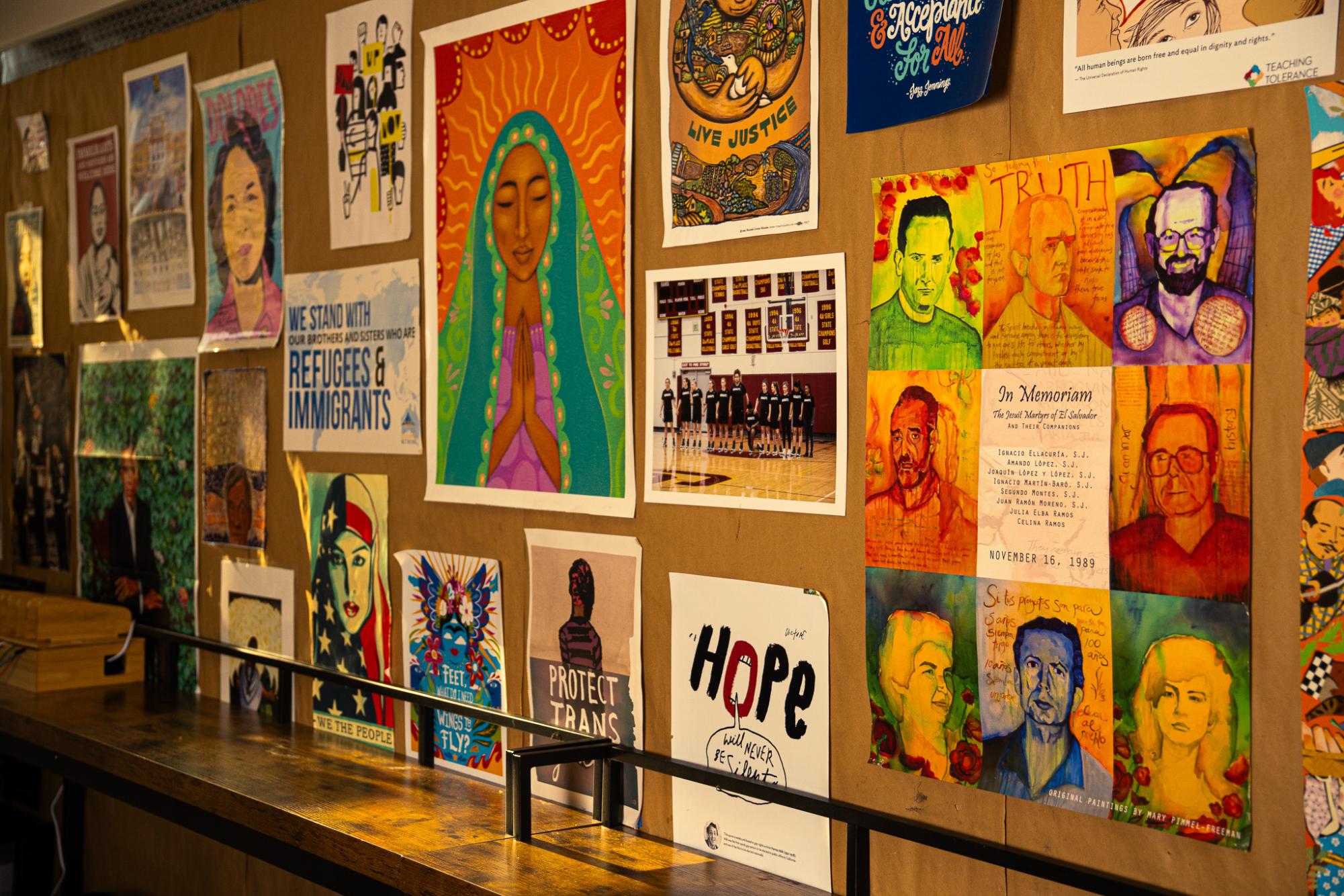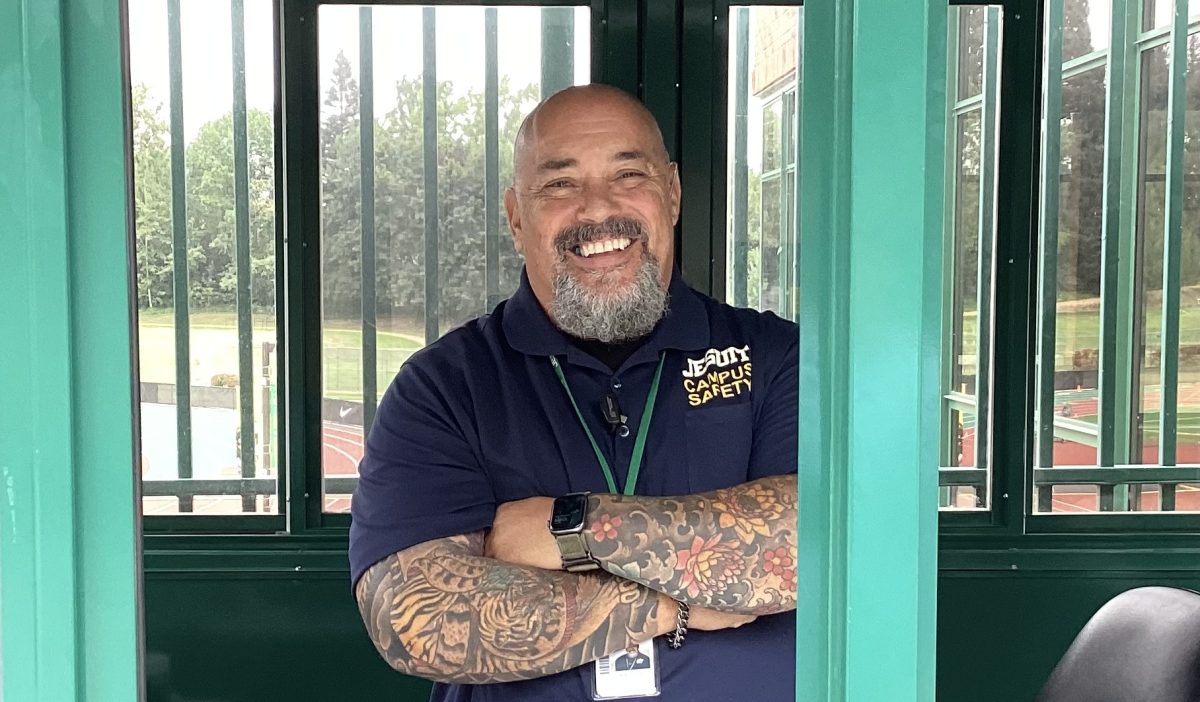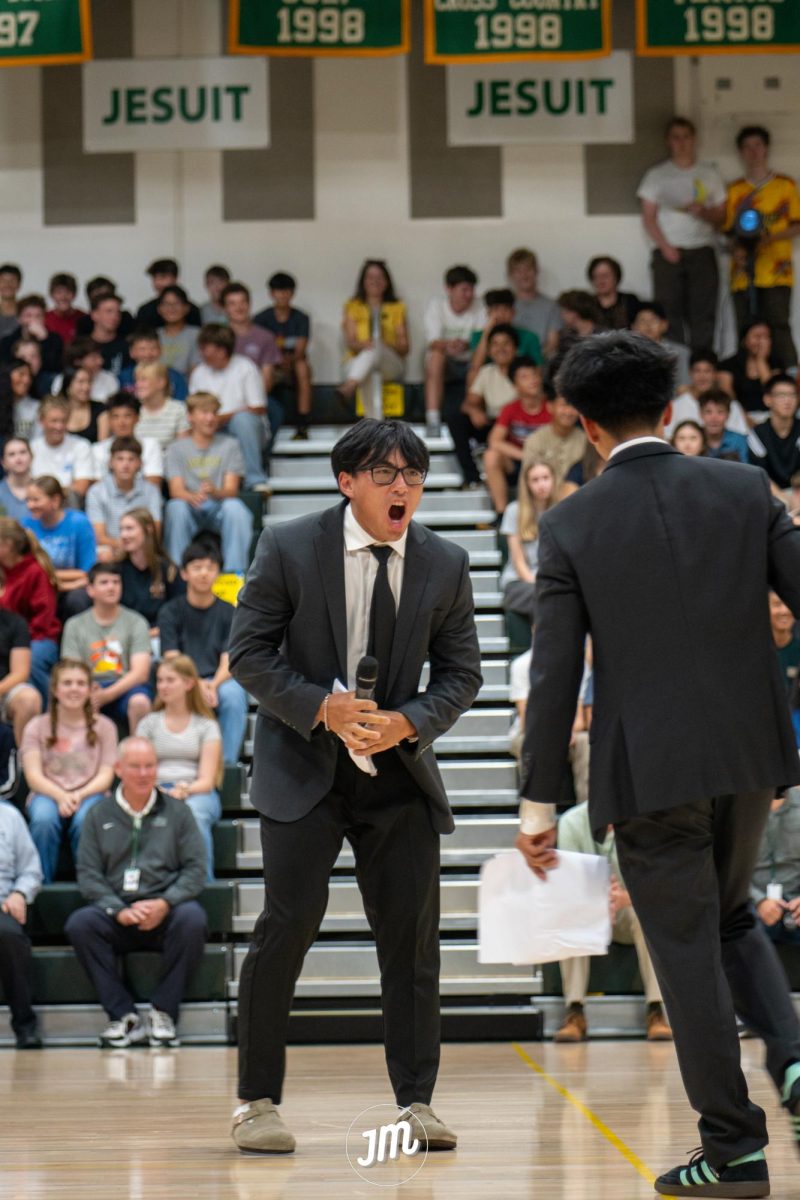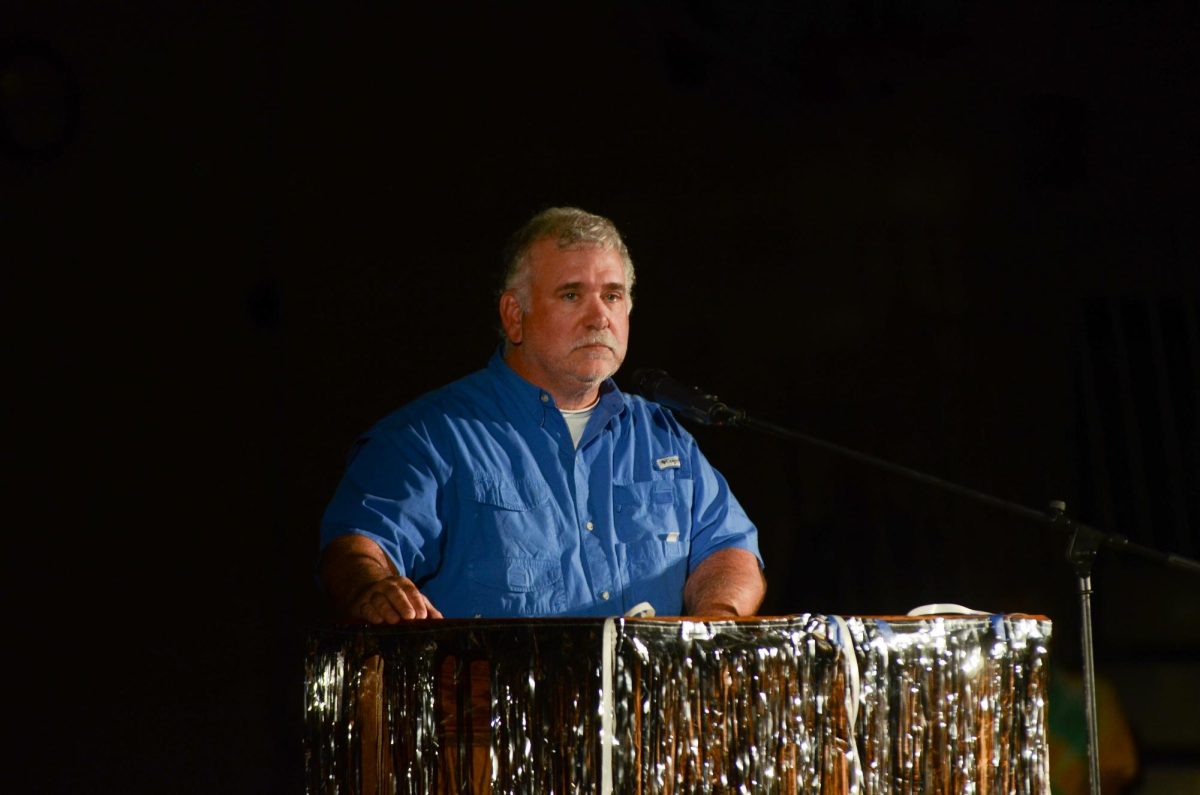Just south of the US-Mexico border in Tijuana, Ms. Montez stood talking to a man at the Casa del Migrante shelter. He asked to use the shelter’s phone, but she tried to explain to him that he had to wait until later that afternoon when they were available. Following her volunteer training, Montez was about to tell the man to just wait until that afternoon, when he replied frantically that he had been abducted and needed to call his family.
In 2017, Montez was a welcoming face for 200 men who had been deported from the US or were trying to cross the border into the US.
Montez joined a program called Casa Del Migrante, a non-profit Civil Association organization to shelter vulnerable immigrants attempting to cross the Mexico border. She heard different stories from all types of voices. While in our interview, one story stuck out to me: a man asking to call his family early in the morning to tell them he had been abducted and held for ransom.
This man and his friend had been taken by Coyotes, a common practice that desperate families turn to in order to cross the border into the US. Coyotes are people who abduct immigrants over the US from the Mexican border in the form of kidnapping.
The people who are smuggled across the border by Coyotes are tortured and held captive. To be released once over the US border, families have to pay large sums of money. The man’s family had to sell all of their belongings, letting go of everything they once knew and loved.
As the man called his family, he told them they had been scammed. He hadn’t made it over the US border even though the Coyotes still made his family pay the release fee.
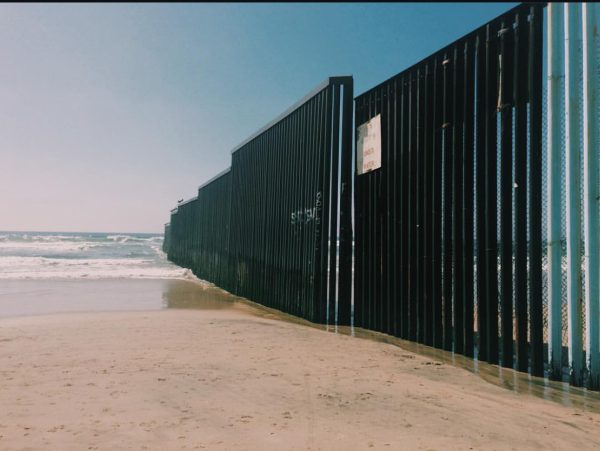
Through this experience at the border of Mexico in Tijuana, Montez learned there are injustices with each step of the journey, not just at the border for people who are trying to cross.
“[I would say this moment] just taught me a lot about the notion of good versus bad. I think in our society we can really easily paint people to be good or bad,” Montez said.
While a foundational experience to continuing her work, her interest in advocating for minorities and anti-racism has been a life-long passion.
Long before her work at the border, Montez grew up in Cathedral City, California, loving to hike, learning to surf, and being outside living near the Joshua Tree National Park. Montez also attended a Jesuit and Catholic high school that started in 2006 for families in the area called Xavier College Prep. She was in the beginning class of student government and created school traditions that continue today.
After graduation, she attended Loyola Marymount University in Los Angeles where she started as a business major. While attending LMU, she spent time with Dolores Mission School, a school that serves low-income families in Los Angeles. While working with Dolores Mission School, Montez was inspired to take the opportunity to study abroad with LMU in Argentina to learn more about minority communities.
In Cordoba, Argentina, she lived in a small home together with everyone in the study abroad program. They focused on building communities by working two days a week in low-income families. Montez assisted in a school with kindergartners through 12th graders. With teaching and supporting the town’s schools, she learned more about their culture.
“We were really focusing on building community and would work two days a week in low income communities,” Montez said.
With her experiences of learning about the injustices of the world and different cultures and communities, her career in Diversity, Equity, and Inclusion began to unfold.
Montez earned her master’s degree in International and Multicultural Education from the University of San Francisco in 2021.
During her time at the University of San Francisco, she studied how students of low-income families and people of color attending Jesuit Middle Schools transition into predominantly white high schools. She observed the ways this affected the students’ cultures and feelings about their race, inspiring Montez’s curiosity in bringing a safe environment to schools and communities.
Her education has continued into her current research as a doctoral student.
“I’m in a doctorate program right now [through] the University of San Francisco [because] of the experiences I have with students and families,” Montez said.
Then in 2021 her career led her from the Bay Area to Portland.
“I came to Jesuit and was first hired to teach Spanish and work in the Arrupe center, and then [the] DEI job opened up,” Montez recalled.
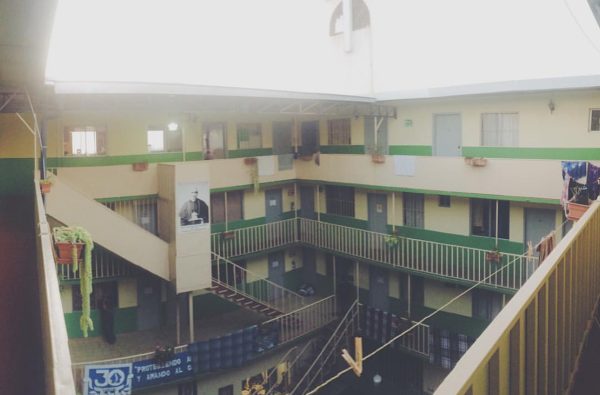
Montez works to make the DEI community at Jesuit an open, welcoming, and supportive environment for all students who come to DEI regarding injustices, new ideas, and opportunities.
DEI at Jesuit and other schools allows for diversity of students from different backgrounds, culture, religion, and race while also feeling included and addressing equity. It brings a fair treatment and full participation in the school atmosphere.
“Our office can be a place for any kid to come in and get school supplies and any kid to feel like they can come in and ask questions,” Montez said.
One of the programs DEI focuses on is the Romero Scholars, giving Jesuit families 80 to 100% financial aid for students that are eligible. They work with the Board of Trustees to help fill the buckets of student programming.
“It’s another way for students to feel accepted in the school community, like they can fully participate as their full selves,” Montez said.
Montez continues to develop DEI by evolving the First Generation program, where students who are the first in their family to go to college can learn about and get help with the application process.
“We’ve done anything from lunch workshops for freshmen, college visits for sophomores and juniors, [and] we call it First Gen Friday for our seniors, just to help them walk through the college application process,” Montez said.
Through a time of conflict, Montez mentions how the DEI team will continue to uphold their mission: “[I think in the coming years] we will need to be looking at who is going to be the most excluded in our society, that has always been the Catholic call,” Montez said.
She wants to make sure Jesuit and the DEI program is making sure that they’re listening to the calls of the community creating systems of equity. Montez also mentions the importance of listening to student’s needs and wants to better help the school atmosphere. These can look like school activities, different environmental needs for classrooms, or being open to new ideas to bring the student body together.
“I think I’ve just always been inspired by student leaders wanting to make their school more inclusive and equitable.”
Starting this year, DEI aides have made an entrance into the community to help the DEI office with assemblies, events, and being more involved in the student body.
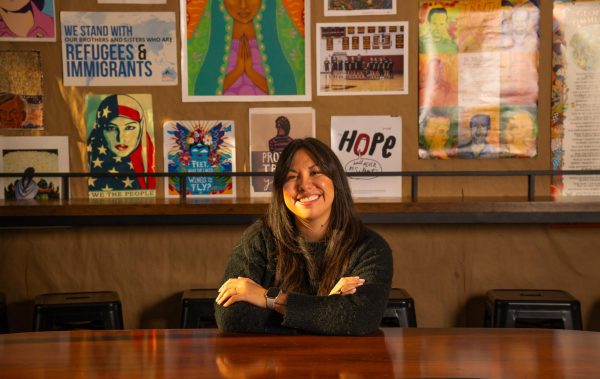
Phebe Vichique Villegas is a DEI aide, helping with the planning of assemblies like the MLK assembly in January. Villegas also helps with social media and decorating the school with DEI posters and boards for all the students to see. Working with Ms. Montez, Villegas has noticed the way DEI has created a safe and welcoming environment for all students.
“I am able to see students coming during lunch a lot of times, a lot of them are just talking with her about how they’re doing in classes,” Villegas said.
DEI has even started to make future goals, involved in reaching out to the community during Social Justice Week and having a second celebration assembly for family and friends.
“Because the community loves it,” Montez said.
Through all her work at Jesuit, Montez still finds time for activism outside of school.
Back in September, DEI directors, including Montez, published an article in America Magazine called “A Catholic Yes to Diversity, Equity, Inclusion, and Belonging.” The magazine focuses on making sure students have dignity and belonging in their environments.
Montez has also brought her DEI expertise to other areas. Recently, she starred in a Podcast, “Chatty Broads,” a bachelor recap. She came on the show to talk about anti-racism and how reality TV gets us to converse about different identities and cultures in our world through a new lens.
Montez has made her life through being an open-minded and kind person that’s ready to continue to make a difference in our community.
“What a gift it’s been to just make students feel like they can be prepared day in and day out,” Montez said.



